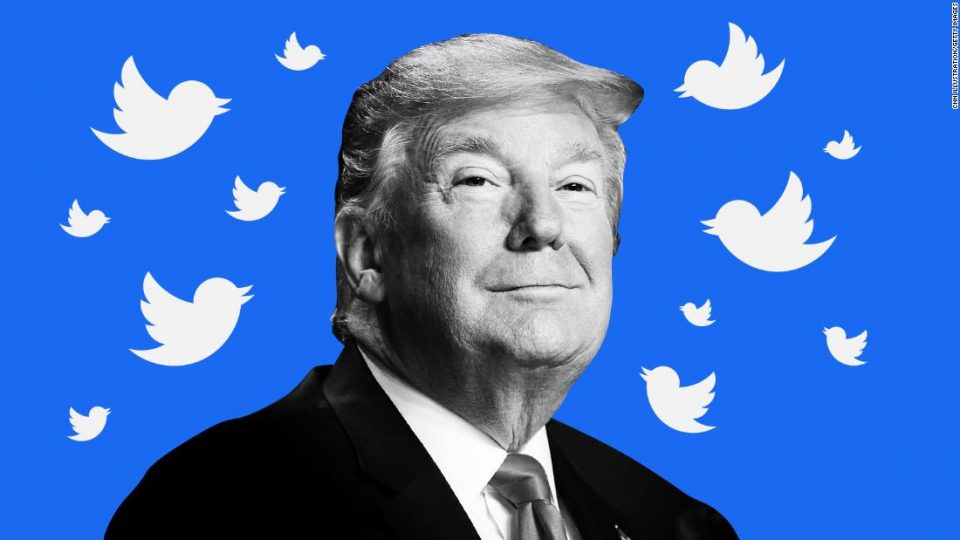He’s whipping up a storm of misinformation that challenged the very notion of fact itself, creating an alternative narrative for Republicans, who are trapped by his mastery of the party’s grassroots base, to adopt.
Democrats had hoped to use the House majority handed to them by midterm election voters last year to spotlight the issues their presidential field is encountering on the trail — access to health care, high college costs and rebalancing an economy tilted further toward the rich and corporations by Trump’s mammoth tax cut.
But Trump’s pressure on Ukraine for dirt on former Vice President Joe Biden — a possible 2020 foe — forced House Speaker Nancy Pelosi to bow to her liberal base and drop her antipathy to impeachment. She will learn next year whether the process, which has deepened divides between two halves of a nation with no common political language, will backfire among swing-state voters.
GOP lawmakers ignored a strong body of evidence of presidential malfeasance in Ukraine, leading to questions over whether the insurmountable partisan divisions in Washington render the ultimate constitutional tool designed to constrain an unchained president is now obsolete.
And once again the specter of foreign interference is threatening to cloud a US presidential election, raising the possibility that whatever happens next year, the legitimacy of Trump’s second term — or the new mandate of the 46th President — will be compromised in the minds of millions of American voters.
The economy — one of the few bright spots
Back in the US, in the last days of the year, the political mood darkened further. Democrats and Republicans seemed to track further apart on the arrangements for the Senate impeachment trial expected to start within days. Trump’s GOP allies in the Senate are refusing to reopen investigations and to call witnesses — despite new evidence of the administration’s machinations over Ukraine that have emerged in recent days. Pelosi is yet to transmit articles of impeachment to the Senate as she awaits the shape of the possible trial — in a sign of how partisanship is infecting the operating system of American democracy.
Trump’s daughter, Ivanka, blamed local New York leaders — many of whom are political foes of her father — for doing too little to stem a rise on anti-Semitic attacks. “Attacks on Jewish New Yorkers were reported almost every single day this past week. The increasing frequency of anti-Semitic violence in New York (and around the country) receives far too little local governmental action and national press attention,” she tweeted.
Her tweet sparked a volley of responses from critics who believe the President’s wild, sometimes racially tinged rhetoric has contributed to a rise in right-wing extremism.
And just when it thought like a leaden holiday season could not get much worse, it did.
A holiday seasons that encapsulated a nation’s divides
Political exchanges that crackled over the holiday season exemplified a sense of national estrangement.
Most recent presidents went off the grid at Christmas. They were more likely to be accused of responding too slowly to events than refusing to cede the spotlight.
But Trump, fulminating over impeachment, quickly disregarded his own advice spelled out in his holiday message: “Together we must strive to foster a culture of deeper understanding and respect — traits that exemplify the teachings of Christ.”
Trump’s invective offers a window into how he wields power — by creating a charged and chaotic political atmosphere in which he seems more comfortable than other leaders.
He long ago dismissed the notion that the presidency helps set the moral tone of the nation. He’s used the platform from the start to advance his own personal and political grievances.
Biden, who is no stranger to tough campaign trail rhetoric, accused Trump of going much further than the norm by subverting America’s moral fabric.
“People are too quick to demonize and dehumanize, too ready to dismiss all that we have in common as Americans,” the former vice president wrote.
“(Trump) doesn’t understand America. He doesn’t know what it means to live for or believe in something bigger than himself,” Biden wrote.
Trump’s defenders often tell those shocked by the President’s antics not to overreact to tweets that might question someone not used to the vitriol to question the commander-in-chief’s state of mind.
Yet Trump has 68 million Twitter followers. His tweets are official presidential statements. And so they are bound to shape the nation’s political discourse.
The President knows his unrestrained behavior is key to his political appeal. His supporters love conduct that tramples every code of the political elites whom they abhor and prove that the outsider that won election in 2016 has not gone native. Media squeamishness about the rhetoric only solidifies his appeal to his flock.
Still, there’s no sign that key Republicans who understand the forces shaping the party’s base are ready to distance themselves from the President — a sure sign of his political strength.
Asked about Trump retweeting an item that contained the unsubstantiated name of a person named by some right-wing outlets as a whistleblower at the center of the Ukraine scandal, Louisiana GOP Sen. John Kennedy demurred.
“I have enough trouble paddling my own canoe. But I do agree with Mrs. Trump that — and I have suggested before to the White House — that if the President would tweet a little bit less, it wouldn’t cause brain damage,” Kennedy told CNN’s Jake Tapper on “State of the Union” on Sunday.
Trump also used his holiday season tweets to spread misleading news accounts about the Ukraine episode from conservative media outlets and commentators. He personally attacked Pelosi and Senate Minority Leader Chuck Schumer — the top two Democrats involved in his impeachment and the Senate trial to come.
His incessant attacks are a bleak omen. If 2019 was a poisoned political year, 2020 will very likely be much worse.


